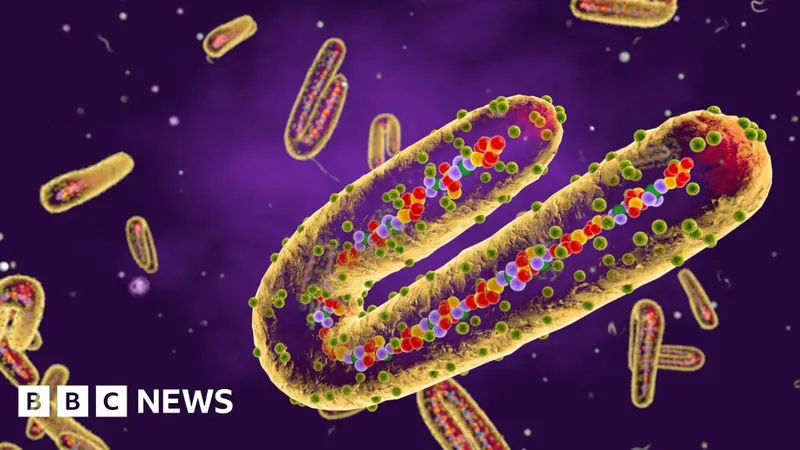
Vaccine Advancements: A Promising Solution to Combat Antimicrobial Resistance and Save Millions
2024-10-11
Author: Li
ISLAMABAD
A groundbreaking report from the World Health Organization (WHO) reveals that better utilization of vaccines against 24 specific pathogens could potentially reduce global antibiotic consumption by an astonishing 2.5 billion defined daily doses each year – a significant 22% reduction. This development underscores the urgent need to tackle antimicrobial resistance (AMR), a growing global health threat that puts millions at risk.
Antimicrobial resistance occurs when bacteria, viruses, fungi, and parasites evolve to resist the effects of medications, rendering treatments ineffective. This leads to increased illness, higher mortality rates, and a greater prevalence of hard-to-treat infections. Shockingly, nearly 5 million deaths worldwide are attributed to AMR each year, highlighting the critical nature of addressing this crisis.
While several vaccines are already available but underutilized, the report emphasizes the necessity of developing and introducing new vaccines to market swiftly. Notably, existing vaccines targeting diseases like pneumococcal pneumonia, Haemophilus influenzae type b (Hib), and typhoid could prevent up to 106,000 AMR-related deaths annually. Furthermore, the WHO estimates that the introduction of new vaccines for tuberculosis (TB) and Klebsiella pneumoniae could avert an additional 543,000 deaths each year.
Currently, new TB vaccines are undergoing clinical trials, while a vaccine for Klebsiella pneumoniae remains in the early stages of development.
Dr. Tedros Adhanom Ghebreyesus, WHO Director-General, emphasized the critical role vaccines play in infection prevention, stating, “Addressing antimicrobial resistance starts with preventing infections, and vaccines are among the most powerful tools for doing that. Prevention is better than cure, and increasing access to existing vaccines while developing new ones for key diseases like tuberculosis is vital in our fight against AMR.”
In tandem with these vaccine initiatives, efforts to combat polio are also intensifying. Dr. Mukhtar Ahmad Bharath, the Prime Minister's health coordinator, recently asserted the government’s commitment to halting polio transmission, particularly as the country faces a troubling surge in cases. During a review meeting, he noted that children who miss vaccinations are at higher risk of severe disease complications and urged all parents to ensure their children receive vaccinations against preventable diseases, including polio.
As the world races against time to combat AMR and prevent infectious diseases, the focus on vaccines shines a glimmer of hope. It is clear that effective vaccination campaigns hold not only the key to reducing antibiotic reliance but also the potential to save countless lives globally.
Stay informed and watch for future developments that may reshape our healthcare landscape in the fight against AMR and beyond!


 Brasil (PT)
Brasil (PT)
 Canada (EN)
Canada (EN)
 Chile (ES)
Chile (ES)
 España (ES)
España (ES)
 France (FR)
France (FR)
 Hong Kong (EN)
Hong Kong (EN)
 Italia (IT)
Italia (IT)
 日本 (JA)
日本 (JA)
 Magyarország (HU)
Magyarország (HU)
 Norge (NO)
Norge (NO)
 Polska (PL)
Polska (PL)
 Schweiz (DE)
Schweiz (DE)
 Singapore (EN)
Singapore (EN)
 Sverige (SV)
Sverige (SV)
 Suomi (FI)
Suomi (FI)
 Türkiye (TR)
Türkiye (TR)